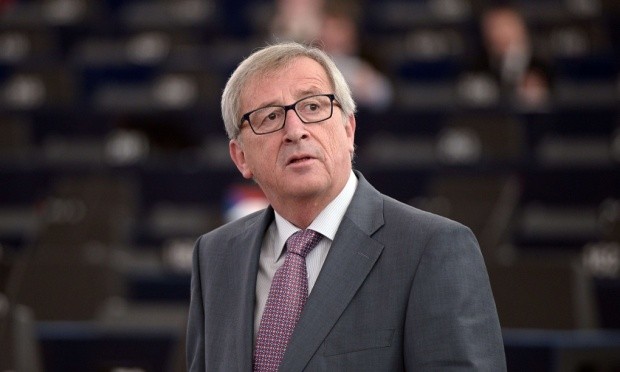(VOVworld) – While Russia and the West seek a solution to the Ukrainian crisis, President of the European Commission Jean-Claude Juncker has called for the creation of an EU army, igniting a controversy among EU countries and worsening Russia-EU relations. VOV comments:
 |
EC President Jean-Claude Juncker said that having an army would solve the problem of the EU’s foreign policy not being taken seriously. (Photo: Frederick Florin/AFP/Getty Images)
|
EC President Jean-Claude Juncker said in an interview with Germany’s Welt am Sonntag newspaper that an EU army would help the EU coordinate its foreign and defense policies and collectively take on Europe's responsibilities in the world.
After World War II, in the 1950s, Germany, France, Italy, and members of the Benelux Customs Union tried to establish a European military community. Their proposal failed because it couldn’t pass the French parliament. The idea has been revived several times since then. In 2004 the EU talked about forming a rotating military force to promptly intervene in any regional crisis, but the plan was never realized.
Is a joint EU army a vision whose time has come?
The EC President said the EU’s external role has weakened and the bloc seems unable to fulfill its responsibility. A joint army would show the world that there will be no war among its members and would reduce total military expenses. The EU could respond more quickly to threats to any of its members. Juncker said such an army would convey to Russia a message that the EU is serious about defending its interests. He rejected the idea that an EU army would undermine the role of NATO.
Internal division and hatred
The real result of a shared army is difficult to predict, but the proposal has provoked conflicting responses. German Chancellor Angela Merkel and Foreign Minister Frank-Walter Steinmeier supported the idea. Merkel said EU military cooperation should be increased in case the EU has to present a common front in dealing with global challenges. Steinmeier warned that confronting new dangers and threats to European peaceful order requires a rapid adjustment of the joint European military strategy.
Meanwhile, other EU countries including France and Britain were not that keen. They hesitate to give the EU a larger military role because it might take over the role of NATO. They fear that such a development might override their own foreign security. Jonathan Steele, the Guardian's senior foreign correspondent, said the EU should carefully weigh ideas which might harm its relations with Russia, when EU sanctions against Russia have already hurt some of the weaker economies in the EU.
Russian Duma member, Leonid Slutsky, said the EU is paranoid about Russia. Slutsky wrote on his Twitter page that the European version of paranoia is declaring the establishment of a unified army to counterbalance Russia, which does not intend to go to war with anyone. Russian Duma Defense Committee member Franz Klintsevich said a joint EU army would be a provocation.
With no solution yet to the Ukraine crisis, additional EU sanctions against Russia and the idea of a joint EU military is sure to worsen EU-Russia relations.